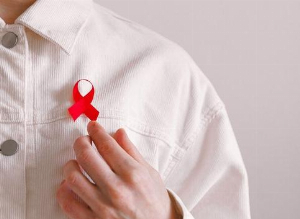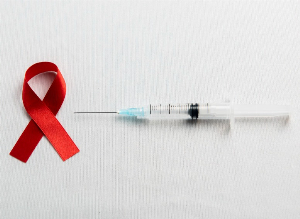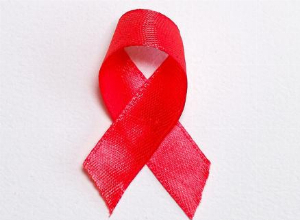What progress is being made in the fight against HIV?
Published Dec 1, 2020 • By Candice Salomé
Each year in the US, around 37,000 people discover they are HIV-positive. To this day, there is no cure for it, but those who are HIV-positive can live longer, thanks to certain treatments.
However, a new milestone in combatting HIV has just been reached. Diaccurate, a French start-up specialized in biotechnology, has managed to identify the enzyme responsible for paralyzing the immune system of patients who have HIV.
So what are the mechanisms of HIV? How is this discovery helping to move research forward?
Let us explain everything in our article!

What is HIV?
Today, 36.9 million people worldwide live with HIV, and 23.3 million of them are being treated. The Human Immunodeficiency Virus (HIV) infects 1.7 million people each year. In the US, more than 1.2 million people live with HIV and 37,000 discover they are HIV-positive each year.
AIDS (acquired immune deficiency syndrome) is a condition caused by the HIV virus that impairs the immune system.
One of HIV's distinctive characteristics is to attack lymphocytes (white blood cells), and most particularly CD4+ T cells (white blood cells that play an important role in the body's immune defenses against infectious attacks).
The virus leads to the elimination of CD4+ T cells, which are essential to a healthy immune system. The body therefore develops an increased susceptibility to infections and to certain cancers. The severity of the condition is especially assessed by the quantity of CD4+ T cells remaining in the body.
HIV-positive patients can be efficiently treated using antiviral drugs, but the treatment must be lifelong because their immune system cannot get rid of the virus, which will continue to replicate if the treatment is stopped.
There are two types of HIV, HIV-1 and HIV-2, which have a few molecular differences. In the US, the vast majority of infections are from HIV-1. HIV-2 is less virulent, less transmissible and mostly strikes in Western Africa.
The most advanced stage of HIV infection is AIDS (acquired immune deficiency syndrome). Without a treatment, it appears on average ten years after the infection (this period of time varies from one person to another).
What has Diaccurate, the biotechnology start-up, discovered?
CD4+ T cells play a key role in the severe immunodeficiency that characterizes HIV infection, using two mechanisms:
- disrupting the functioning of lymphocytes
- decreasing the number of lymphocytes
Although the role of CD4+ T cells is well established, one question remained unanswered until now: Why are all CD4+T cells dysfunctional in HIV-positive patients when less than 0.5% of these lymphocytes are infected by the virus?
The French start-up, along with its six partners, has published in the prestigious Journal of Clinical Investigations the results of a study which finally reveals the complex mechanism of action of HIV on patients' immune systems.
The discovery made by Diaccurate, a spin-off from the Pasteur Institute, is therefore groundbreaking. The company has identified the enzyme responsible for the destruction of white blood cells, a protein naturally produced in the human body. But when infected with HIV, it is this enzyme that weakens the membranes of white blood cells.
It is the PLA2G1B enzyme that is naturally secreted by the pancreas in the digestive system. "Our discovery shows how the virus cooperates with an enzyme in the patient's body to induce lymphocyte dysfunction and allow the virus to neutralize the patient's immune response," explains Professor Jacques Thèze, co-founder of Diaccurate.
However, in HIV-positive patients, a fragment of the virus will weaken CD4+ T lymphocytes, which will then be attacked by the PLA2G1B enzyme. The membrane of these lymphocytes will then become deformed and bumpy.
Because of this deformation, the CD4+ lymphocytes receptors are blocked, and they can no longer act as regulators. The immune system therefore cannot defend itself. Patients are immunocompromised and more susceptible to other infections or cancers than can lead to death.
What changes can the Diaccurate discovery make?
The identification of this bumpy membrane on CD4+ lymphocytes, as well as the role played by the PLA2G1B enzyme, opens the way to exploration of a new type of treatment for HIV-positive patients. With its publication in the Journal of Clinical Investigations, Diaccurate announced that they are developing a humanized monoclonal antibody* capable of neutralizing the PLA2G1B enzyme to reverse the CD4+ anergy and CD4+ lymphopenia. They are currently in the preclinical stage of development.
Nevertheless, this treatment will need considerable funding and is not expected to be developed for another 5 to 10 years. However, its development could potentially lead to complete remission in HIV-positive patients. According to Philippe Pouletty, managing director of Truffle Capital (the venture capital firm behind the creation of Diaccurate): "We know we can efficiently neutralize this enzyme with this antibody (called Plazumab). But we will need many years of clinical trials before we can say that this mechanism can lead to a functional cure for AIDS or cancers."
*The ultimate goal of humanizing an antibody is to produce variable regions similar to human regions without the humanized antibody losing the resemblance to and specificity of the murine antibody, INSERM.
This unprecedented discovery therefore paves the way for new therapeutic strategies. But there is still a long way to go and significant funding to be secured before scientists can unveil a new antiviral therapy.
Was this article Helpful to you?
Share your thoughts and questions with the community in the comments below!
Take care!
Sources:
- Diaccurate ouvre une nouvelle voie thérapeutique pour le VIH, Les Echos
- La biotech française Diaccurate annonce un pas de géant dans la lutte contre le sida, BFM Business
- Première mondiale : Diaccurate, biotech fondée par Truffle Capital, révèle le mécanisme de paralysie du système immunitaire dans le Sida, Biotech.info
- Sida et VIH, à quand la guérison ?, Inserm
- Sida : une biotech française annonce une "découverte importante" dans le traitement du VIH, LCI
- HIV statistics, Centers for Disease Control and Prevention

 Facebook
Facebook Twitter
Twitter


